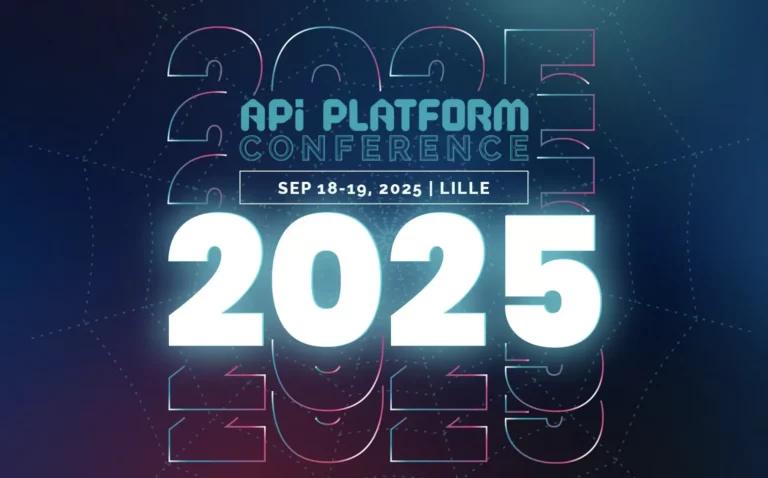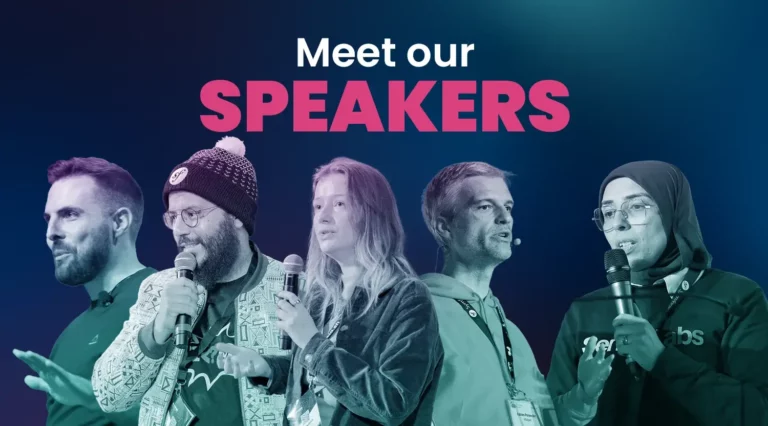10 years of API Platform
Published on January 20, 2025
The very first commit was made on January 20, 2015: today, the API Platform framework is celebrating its 10th anniversary. Throughout 2025, we have planned numerous events and content to commemorate this major milestone in the life of a project that, over the past decade, has become the leading solution for creating modern and efficient APIs.
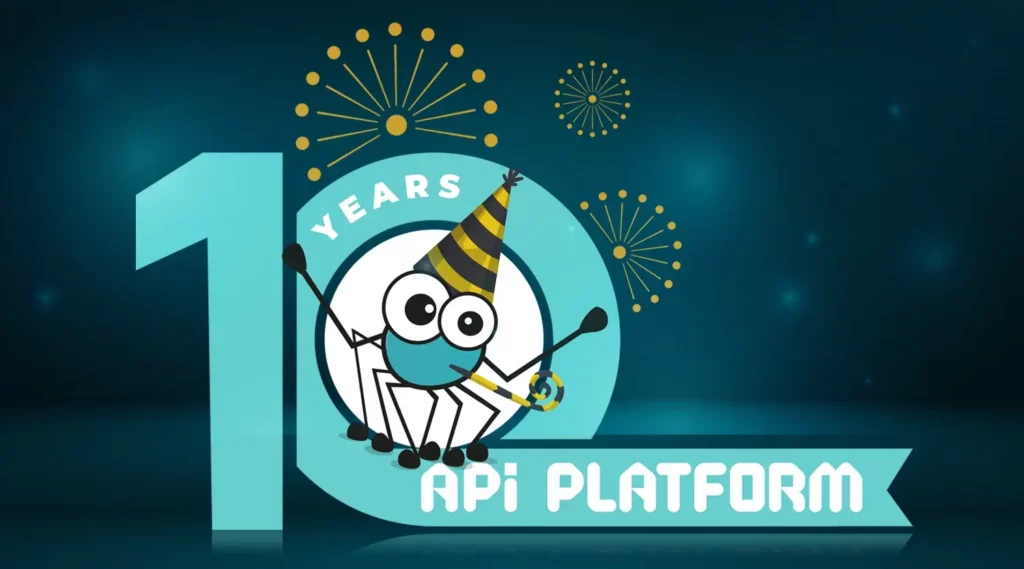 #
#2015: A Vision for Standardization and Simplicity
Designed to simplify API creation, the first version of API Platform was released on June 8, 2015. One of the first demonstrations to the community took place in March of the same year, during SymfonyLive Paris (in French). The philosophy of API Platform has not changed since then: its goal is to create complete, powerful APIs that follow industry best practices in just a few minutes, without requiring domain expertise, while also allowing for extension, specialization, and overriding all aspects of the API.
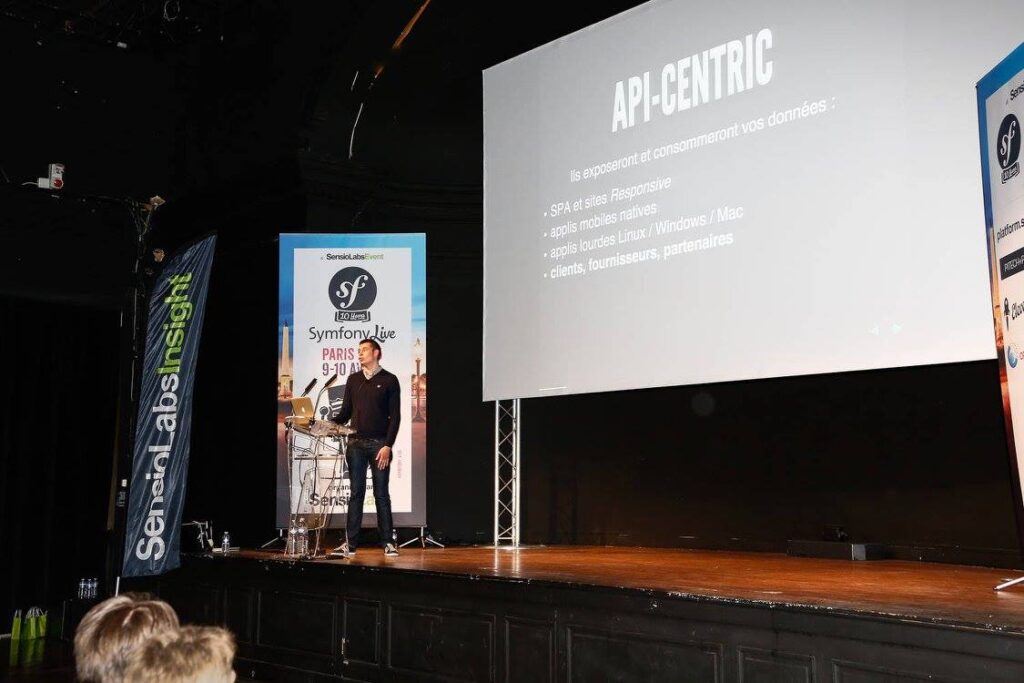
From the outset, the project embraced the most advanced web standards, such as RDF (JSON-LD, Hydra, Schema.org…) and most of the RFCs dedicated to web APIs. It also adopted best development practices from the start: composition over inheritance, strong typing, adherence to SOLID principles, static code analysis, integrated documentation, an automated test pyramid, and semantic versioning.
API Platform was initially available as a bundle for Symfony, which is still the case today (although it is now also possible to use API Platform independently and with Laravel, as we will see later). The collaboration between API Platform and Symfony has only grown stronger over time: API Platform uses many Symfony components, and the API Platform team regularly contributes to Symfony.
The first versions focused on the automatic generation of robust APIs, while providing integrated documentation based on open formats such as Hydra and OpenAPI (formerly Swagger). This made it easy to document and expose APIs with minimal additional effort. The tool gained popularity for its ability to deliver optimal results while significantly reducing development time. By leveraging the PHP ecosystem and emphasizing automation, API Platform laid the foundation for its vision and quickly established itself within the ecosystem.
2017: The Rise of API Platform
Between 2017 and 2019, API Platform experienced impressive growth, establishing itself as a must-have tool for API development. The framework's ability to generate complete, automatically documented APIs with minimal code made it a natural choice for teams seeking productivity and reliability. A major milestone was the integration of GraphQL: this query language, widely acclaimed by the front-end community for its flexibility and efficiency, further increased the framework's appeal.
API Platform also expanded into real-time and asynchronous APIs with the integration of the Mercure protocol. Data created or modified can now be instantly propagated to all clients connected to the API (websites, mobile apps) by simply enabling a configuration option. Clients can subscribe to updates via the browser's EventSource function for REST APIs and through GraphQL subscriptions. Meanwhile, the API Platform distribution was enriched with an administration interface, initially based on ng-admin and later replaced with the highly popular React Admin, simplifying the management of data exposed by APIs. API Platform also introduced a client generator, enabling developers to “scaffold” Single Page Apps and Progressive Web Apps based on Next.js, Nuxt, Angular, Vuetify, or Quasar using the API documentation.
By adding new features while staying true to its original philosophy of accessibility, API Platform established itself as a comprehensive and versatile tool, supported by a growing and engaged community.
2022: A New Era
In September 2022, API Platform reached a new milestone with the release of version 3.0, presented during the keynote at the API Platform Conference. Thanks to the attributes introduced in PHP 8, this new version offers greater modularity and simplifies configuration. It also features a more extensible architecture (the State\Provider and State\Processor interfaces), along with significant performance improvements due to its compatibility with Symfony 6. Additionally, it introduces a new resource state management system, a complete redesign of the sub-resource system, and an upgrade of standards to meet a broader range of needs.
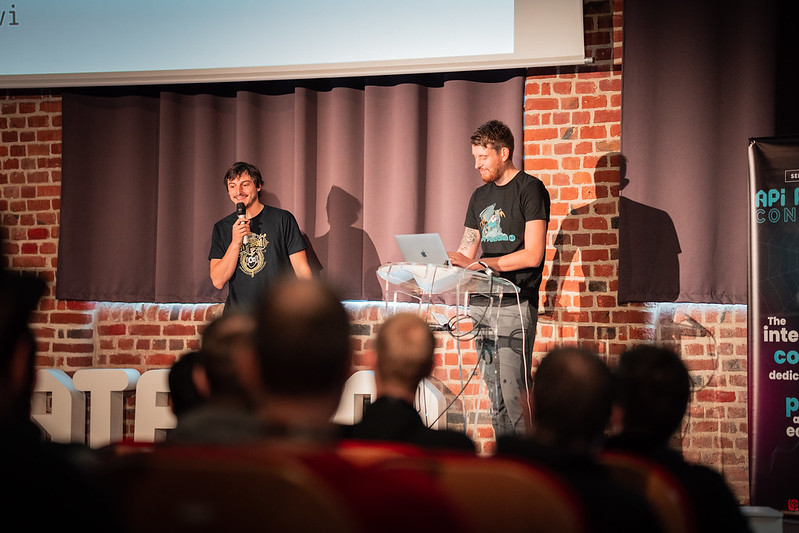
API Platform 3 also supports FrankenPHP, the high-performance application server we developed, which boosts the performance of PHP applications by up to 15x.
2024: Laravel support
In September 2024, version 4 was launched, integrating support for Laravel and its Eloquent ORM, as well as a new approach to managing filters and query parameters. This promising development reflects the core team’s commitment to embracing new ecosystems while strengthening the complementarity between Laravel's ease of use and API Platform's rich feature set. Now more than ever, API Platform is continuously evolving, with version 4.1.0 having been pre-released last week.
An incredible community
In just 10 years, over 900 contributors have helped make API Platform a reference too for developing modern and high-performance APIs. Hundreds of meetups, conferences, and keynotes about the framework have been held around the world. Many national and international conventions have trusted the team maintaining the project to present their latest developments: Forum PHP, SymfonyLive, SymfonyCon, API Days, LaraconEU, WebSummerCamp, Web2Day, Nordic APIs, Le Camping des Speakers, PHP UK Conference... API Platform is also part of the tech stack for many web and e-commerce projects: CHANEL, Decathlon, Volvo, ARTE, France Télévisions, AB InBev, the French and US governments.
Join us to celebrate 10 years of API Platform!
Since 2021, we have been organizing the API Platform Conference in Lille, the headquarters of Les-Tilleuls.coop and a crossroads for some of Europe’s largest cities—an international event dedicated to the framework and its ecosystem. Over the past four years, we have had the privilege of hosting prestigious speakers such as Ryan Weaver, Pauline Vos, Matt Holt, Derick Rethans, Marine Gandy, Phil Sturgeon, or Nicolas Grekas, along with our equally talented cooperators.
This year, the API Platform Conference is back on September 18-19 for an exceptional anniversary edition. Many activities are planned throughout the conference, including a Birthday Party on the evening of Thursday, September 19. If you want to join, the call for papers is now open, and Early Bird tickets are available. The first speakers will be announced starting May 14.
In addition to the conference, a series of meetups will kick off in March. Our core team will travel to several cities across France to celebrate this very special year. While we await the announcement of the first date, join the meetup group to stay updated and not miss a thing!

